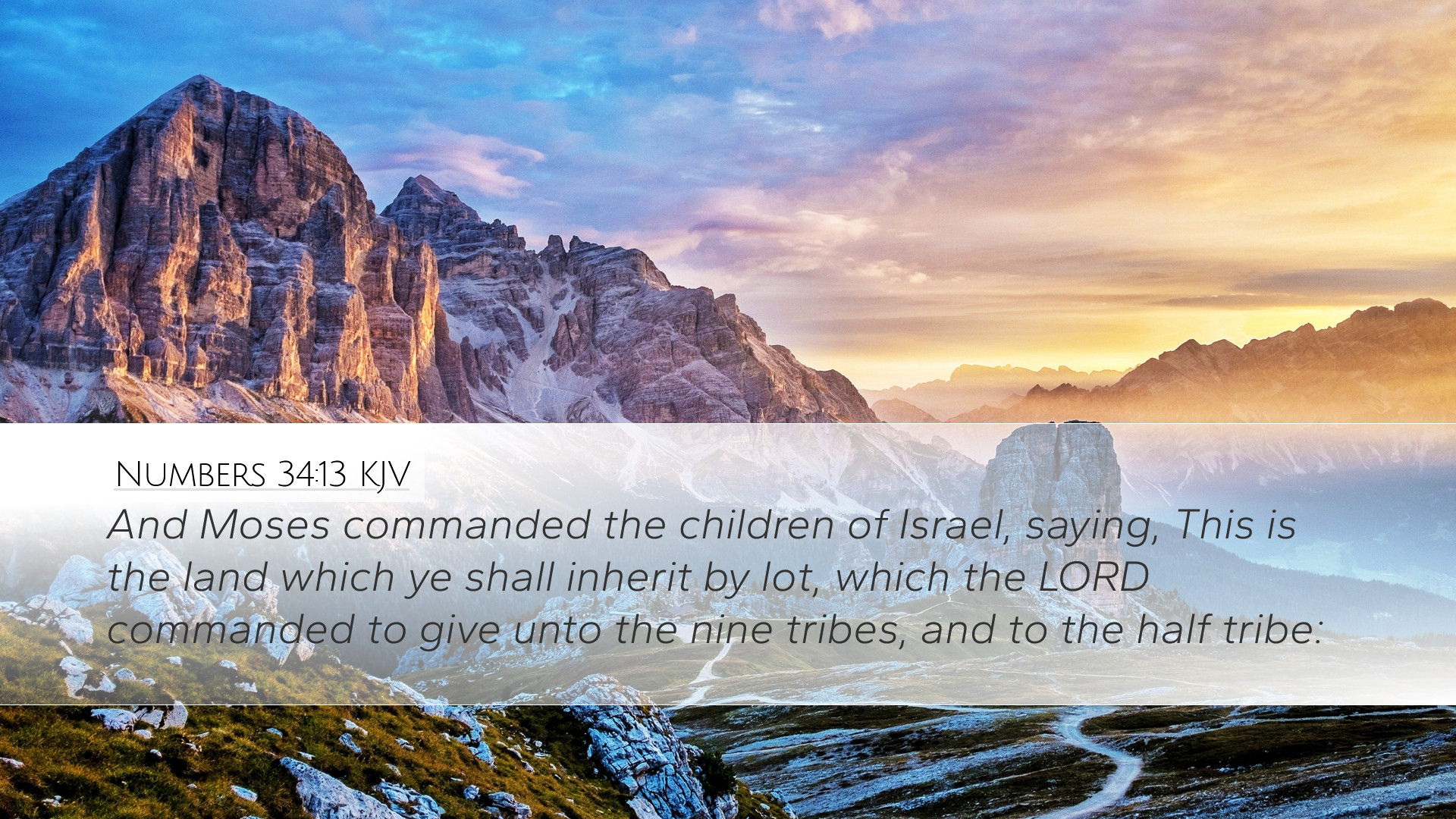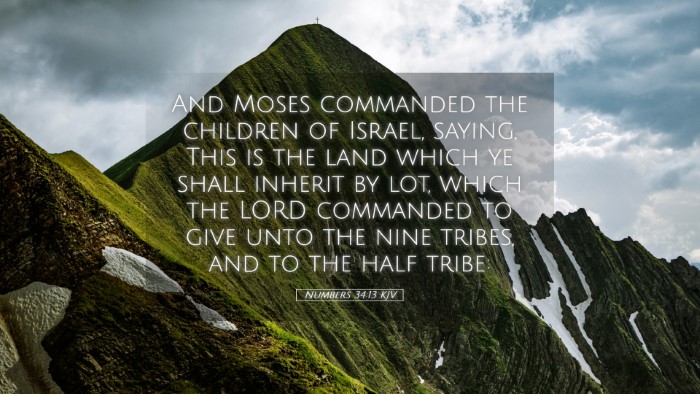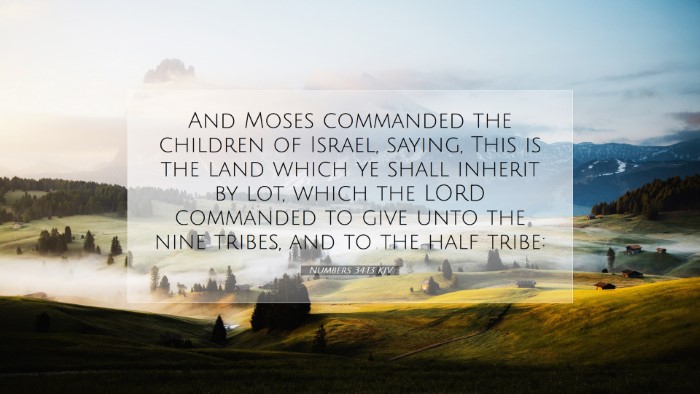Bible Commentary on Numbers 34:13
Verse Context: Numbers 34:13 states, “And Moses commanded the children of Israel, saying, This is the land which ye shall inherit by lot, which the Lord commanded to give unto the nine tribes, and to the half tribe of Manasseh.” This verse comes at a critical juncture in Israel's history, as they are on the brink of entering the Promised Land. The allocation of land is both a practical and theological matter, reflecting God's promises to His people.
Understanding the Historical Context
The Israelites had wandered in the wilderness for forty years, and now they stand ready to inherit the land that God had promised to their forefathers. This moment signifies the fulfillment of covenant promises, a theme prevalent throughout the book of Numbers.
- God’s Promise Fulfilled: The allocation of the land symbolizes God's faithfulness to His word. Moses acts as the mediator, reiterating the significance of divine command in the process of inheritance.
- Divine Instructions: The method of dividing the land by lot underscores that the land belongs to God and He is in control of its distribution among His people.
The Meaning of Inheritance
Inheritance in biblical terms often reflects not just physical land, but also spiritual heritage. The Israelites' inheritance signifies their identity as God’s chosen people.
- Covenantal Identity: The land represents both a physical and a spiritual reality whereby the Israelites are to fulfill their covenant duties towards God.
- Implications for Future Generations: This verse highlights that the decisions made will affect the generations that follow. The inheritance is not merely for immediate enjoyment but should also serve to establish holy living among the tribes.
Commentaries from Notable Theologians
Matthew Henry
Henry emphasizes the importance of obedience to God’s commands in enjoying the blessings of inheritance. He notes that the land's allocation was significant as it served to reinforce God’s sovereignty. Every tribe's distinct boundaries are reminders of God’s providence and the importance of trust in God's plan, which guarantees that the inheritance will be achieved according to His will.
Albert Barnes
Barnes comments on the procedural aspect of land division, asserting that it is vital for maintaining order and unity among the tribes. He articulates that by casting lots, the Israelites are acknowledging God’s ultimate authority in their affairs. This recognition serves to instill a sense of communal responsibility and collective identity among the tribes while fostering a reliance on divine guidance.
Adam Clarke
Clarke brings attention to the cultural significance of land in the ancient Near East, asserting that the inheritance of land was viewed as a critical aspect of tribal identity and stability. He discusses how this inheritance is not merely for occupation but intertwined with God’s moral expectations for His people. Clarke elaborates on the true weight of inheriting the land—possession implies responsibility.
Theological Reflections
This passage provides rich material for theological reflection:
- God's Sovereignty: The clear divinely ordained process for land inheritance asserts God's sovereignty over creation and human affairs.
- Community and Responsibility: The responsibility of each tribe in relationship to the land encourages a shared sense of stewardship, reflecting the community-oriented nature of God’s people.
- Spiritual Inheritance: The theme of inheritance invites parallel reflection on the New Testament understanding of inheritance in Christ, leading to discussions around spiritual gifts and responsibilities that come with being heirs of grace.
Practical Applications for Today
This commentary holds pertinent lessons for contemporary believers:
- Trust in God’s Plan: Just as the Israelites relied on God for their inheritance, modern believers are reminded to trust in God’s plans for their lives.
- Recognizing Divine Authority: Understanding that all we possess is ultimately a gift from God can inspire gratitude and humility.
- Stewardship: The concept of inheriting land carries over to how we manage our resources today. Believers are called to be responsible stewards of the environment and their communities.
Conclusion
Numbers 34:13 encapsulates a pivotal moment in Israel's history, underscored by themes of divine sovereignty, identity, and responsibility. The rich commentary provided by Henry, Barnes, and Clarke enables pastors, students, and scholars to delve deeper into understanding not only the historical context but also the significant theological implications for today’s church. As we explore this inheritance, we are reminded of our own spiritual heritage and responsibilities as children of God.


